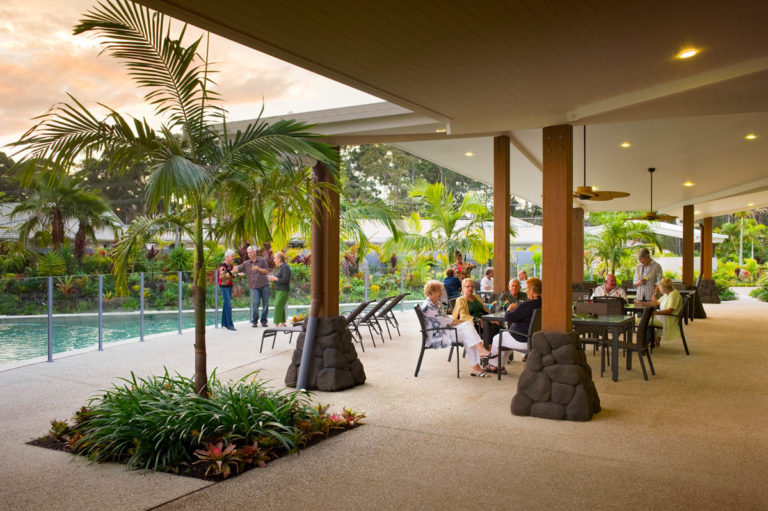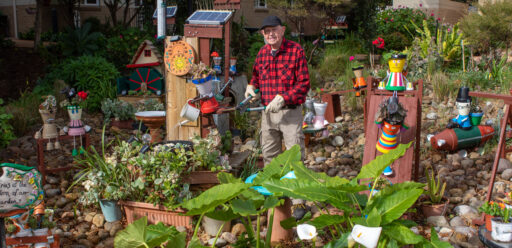The pros and cons of downsizing your home
As we get older what we need from the place we call home changes and sometimes that means not needing such a big place.

Got too much room? Would you like a smaller garden or not so many bathrooms?
As we get older, our needs and wants for the place we call home can change. For some of us, it can mean trading in our large four-bedroom family home for something a little smaller and easier to maintain.
In this article, we go through some of the pros and cons of downsizing your home.
Benefits of downsizing your home
1. Boost your retirement savings
Selling the family home and downsizing to a smaller place may help to free up some of your money. It means you may have some extra cash to pay off your mortgage, to invest or spend on that holiday you’ve been planning.
2. Less maintenance
If you're still living in the family home where the kids grew up, with four bedrooms, two bathrooms and a double garage, you may have more room than you need. A smaller place may be easier to maintain so you can spend less time working around the house. This could include smaller or no lawns to mow, minimal or no gardening, less rooms that require repainting and touch-up work and less guttering to clean and upkeep. If you choose a retirement village to downsize to, common areas are looked after by the operator and they'll even help with some of the day-to-day maintenance in your home, like changing light bulbs.
3. Less cleaning
Downsizing can result in a lot less time spent cleaning. Two bedrooms are a lot quicker to vacuum than four, and one bathroom to scrub is much better than two. Choosing to downsize means you can also look for homes that have easy-to-clean areas and surfaces, such as tiled or laminate flooring and easy-to-clean countertops. Downsizing can also give you a chance to declutter and think about the things you really want in your home, leaving less knick-knacks and decor to dust.
4. Cheaper to run
Heating and cooling a home can be expensive, so having a home with a smaller footprint means you could save money when the electricity and gas bills come around each quarter.
5. Improve your connections
Moving to a new place means you can choose to move closer to family, transport, services or the location that suits your needs. If your family has moved away from the area, maybe you find yourself no longer near the services you need, or perhaps you’d like a sea change – a move might be just what you need.
6. Become more savvy
Downsizing to a smaller home can help reduce your consumption. If there's no place to put it, you're much less likely to buy it. That means you may acquire less clothing, furniture and other goods.
7. Reduce your stress
Typically, a smaller home means less responsibility, a smaller workload, and greater flexibility. Homeowners who have successfully downsized may feel happier and less stressed when they're no longer overwhelmed by the demands and responsibilities of a larger home.


Disadvantages of downsizing
1. Changing furniture
If you are downsizing it means there will be less space, so you might have to make some tough choices when it comes to your things – so the seven-seater lounge might need to be traded in for a two-seater sofa. On the flip side, it's a great opportunity to refresh and start your next chapter with furniture you love!
2. Having to let go
We often have an emotional connection when it comes to our homes and possessions, particularly if you’ve lived there for a long time, so it can be hard to let go.
3. Making your new space work
You might need to rethink how you go about doing the things you enjoy. If you like to entertain, then dinner parties may need to be smaller and you might not be able to have so many people stay. But if you’ve bought a new sofa, then there’s always the sofa bed.
4. New around here
If you are moving to a new area, it can take time to adjust to a new neighbourhood and establish new friendships. But making new friends and connections is part of the experience.
“We got the travel bug many years ago – we love seeing new places, experiencing different cultures. When we moved here we found it was so easy to travel. We lock the door and we don’t have to worry about a thing.”
Christine and Allan Casey
IRT Kangara Waters residents
Other things to think about
1. Good design
If you are looking for a new home or smaller property, many retirement living providers like IRT offer villas designed to meet your changing needs as you get older.
We encourage you to look out for bathrooms and kitchens fitted out with modern and safe fixtures and fittings such as hand rails that can be easily adapted to meet any potential future accessibility issues.
Appliances installed at easy-to-reach height levels and minimal steps and trip hazards are also important for this stage in your life.
Some purpose-built retirement villages also feature safety and security technology such as built-in emergency response systems if you were to have a fall.
Also, if you choose a retirement village to downsize to, common areas are looked after by the operator and they’ll even help with day-to-day maintenance in your own home, like changing light bulbs.
2. Financial considerations
There are many financial considerations to weigh up when downsizing in retirement. Some things to consider may include:
- tax implications (such as capital gains tax) if you're selling your home
- implications of any other existing property you own (such as investment properties)
- fees associated with engaging the help of local real estate agents, such as advertising and real estate agent fees and commission
- interest rates on your home loan and fees associated with opening or closing any bank accounts you may have
- buying and selling in the same market - your profit margins might not be as high
- legal fees and stamp duty if you're buying a new home
- your current retirement income and how this may change
- any existing government benefits you may be receiving, such as the age pension, and how these may be affected
- the cost of removalist companies and buying new furniture to suit your new home
- home and contents insurance premiums.
3. Independent advice
It's a good idea to seek independent and expert advice as part of your retirement planning so that you can make informed decisions about your future.
- Financial - A financial adviser can review your financial assets, income, discuss any financial risks and answer any questions you may have so that you can feel confident and prepared to move forward with your retirement plans.
- Legal - It's also a good idea to engage a legal professional to review sale contracts and oversee property settlement too.
For more information about downsizing, you can also visit the Australian Securities and Investment Commission's Moneysmart website here.

Retirement living at IRT
If you’re interested in downsizing your house and upsizing your life, IRT has more than 30 retirement villages across NSW, Qld and ACT. Find out more about the possibilities of village life and how one of our independent living communities can suit you and your unique needs.
Find out moreYou may also like
10 benefits of exercise for mental health
We all know that exercise is important for our physical wellbeing, but have you considered the benefits of exercise for your mental health?
How to choose where to live in retirement
Retirement is something we are all working towards but there are plenty of things to consider before getting there – including where to live.


